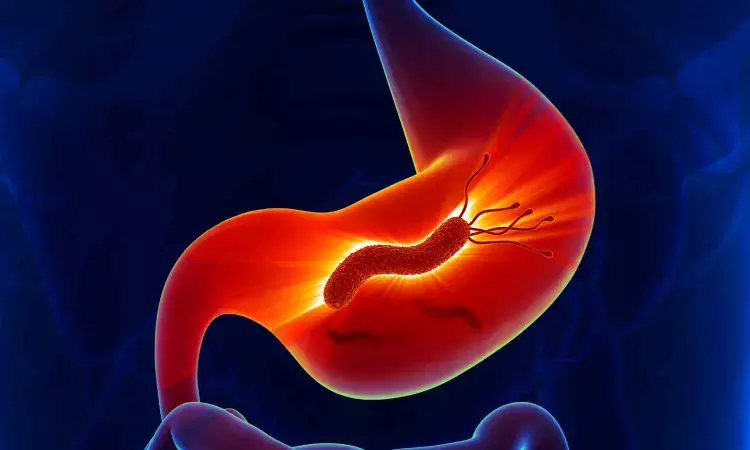- Home
- Medical news & Guidelines
- Anesthesiology
- Cardiology and CTVS
- Critical Care
- Dentistry
- Dermatology
- Diabetes and Endocrinology
- ENT
- Gastroenterology
- Medicine
- Nephrology
- Neurology
- Obstretics-Gynaecology
- Oncology
- Ophthalmology
- Orthopaedics
- Pediatrics-Neonatology
- Psychiatry
- Pulmonology
- Radiology
- Surgery
- Urology
- Laboratory Medicine
- Diet
- Nursing
- Paramedical
- Physiotherapy
- Health news
- Fact Check
- Bone Health Fact Check
- Brain Health Fact Check
- Cancer Related Fact Check
- Child Care Fact Check
- Dental and oral health fact check
- Diabetes and metabolic health fact check
- Diet and Nutrition Fact Check
- Eye and ENT Care Fact Check
- Fitness fact check
- Gut health fact check
- Heart health fact check
- Kidney health fact check
- Medical education fact check
- Men's health fact check
- Respiratory fact check
- Skin and hair care fact check
- Vaccine and Immunization fact check
- Women's health fact check
- AYUSH
- State News
- Andaman and Nicobar Islands
- Andhra Pradesh
- Arunachal Pradesh
- Assam
- Bihar
- Chandigarh
- Chattisgarh
- Dadra and Nagar Haveli
- Daman and Diu
- Delhi
- Goa
- Gujarat
- Haryana
- Himachal Pradesh
- Jammu & Kashmir
- Jharkhand
- Karnataka
- Kerala
- Ladakh
- Lakshadweep
- Madhya Pradesh
- Maharashtra
- Manipur
- Meghalaya
- Mizoram
- Nagaland
- Odisha
- Puducherry
- Punjab
- Rajasthan
- Sikkim
- Tamil Nadu
- Telangana
- Tripura
- Uttar Pradesh
- Uttrakhand
- West Bengal
- Medical Education
- Industry
H. pylori stool antigen and fecal immunochemical tests combo fails to lower gastric cancer mortality: JAMA

A new study published in the Journal of American Medical Association showed that the combination of testing for H pylori stool antigen (HPSA) and fecal immunochemical tests (FIT) did not lower the incidence of stomach cancer or gastric cancer death when compared to a FIT invitation alone.
It is uncertain how Helicobacter pylori screening affects the incidence and death of stomach cancer. This study was carried out to determine if, among the individuals invited for fecal immunochemical testing-based colon cancer screening, the rates of gastric cancer incidence and death are lower when FIT is combined with a stool antigen test for Helicobacter pylori.
This practical randomized clinical study included the inhabitants of Taiwan between the ages of 50 and 69 who are qualified for biannual fecal immunochemical testing (FIT) for the detection of colon cancer. FIT evaluation alone or an invitation for H. pylori stool antigen (HPSA)+FIT examination was given to participants at random. Between January 1, 2014, and September 27, 2018, this study was carried out. The last follow-up took place on December 31, 2020. Invitation for testing for H. pylori stool antigen was the major intervention technique. The incidence and mortality of stomach cancer were the main results. Every invited person was examined in accordance with the groups to which they were randomly assigned.
- The screening participation rates for individuals who were invited were 35.7% for FIT alone and 49.6% for HPSA + FIT. Of the 12,142 individuals whose HPSA results were positive, 8664 underwent antibiotic therapy, and 91.9% had their infection eradicated.
- The incidence rates of gastric cancer were 0.037% in the FIT-alone group and 0.032% in the HPSA+FIT group. The death rates from gastric cancer were 0.013% in the FIT-alone group and 0.015% in the HPSA+FIT group.
- Following post hoc analysis to account for variations in screening participation, follow-up duration, and patient characteristics, an invitation for HPSA + FIT was linked to decreased incidence of gastric cancer but not gastric cancer death when compared to FIT alone.
- The most frequent side effects among people who took antibiotics were dyspepsia or decreased appetite and diarrhea or stomach discomfort.
Overall, an offer to test for H pylori stool antigen in conjunction with FIT did not significantly lower incidence of gastric cancer when compared to an invitation for FIT alone, although the results might have been influenced by variations in screening participation and follow-up time between the two groups.
Source:
Lee, Y.-C., Chiang, T.-H., Chiu, H.-M., Su, W.-W., Chou, K.-C., Chen, S. L.-S., Yen, A. M.-F., Fann, J. C.-Y., Chiu, S. Y.-H., Chuang, S.-L., Chen, Y.-R., Chen, S.-D., Hu, T.-H., Fang, Y.-J., Wu, M.-S., Chen, T. H.-H., Yeh, Y.-P., Lin , Jaw-Town, … Hsu, C.-Y. (2024). Screening for Helicobacter pylori to Prevent Gastric Cancer. In JAMA. American Medical Association (AMA). https://doi.org/10.1001/jama.2024.14887
Neuroscience Masters graduate
Jacinthlyn Sylvia, a Neuroscience Master's graduate from Chennai has worked extensively in deciphering the neurobiology of cognition and motor control in aging. She also has spread-out exposure to Neurosurgery from her Bachelor’s. She is currently involved in active Neuro-Oncology research. She is an upcoming neuroscientist with a fiery passion for writing. Her news cover at Medical Dialogues feature recent discoveries and updates from the healthcare and biomedical research fields. She can be reached at editorial@medicaldialogues.in
Dr Kamal Kant Kohli-MBBS, DTCD- a chest specialist with more than 30 years of practice and a flair for writing clinical articles, Dr Kamal Kant Kohli joined Medical Dialogues as a Chief Editor of Medical News. Besides writing articles, as an editor, he proofreads and verifies all the medical content published on Medical Dialogues including those coming from journals, studies,medical conferences,guidelines etc. Email: drkohli@medicaldialogues.in. Contact no. 011-43720751


